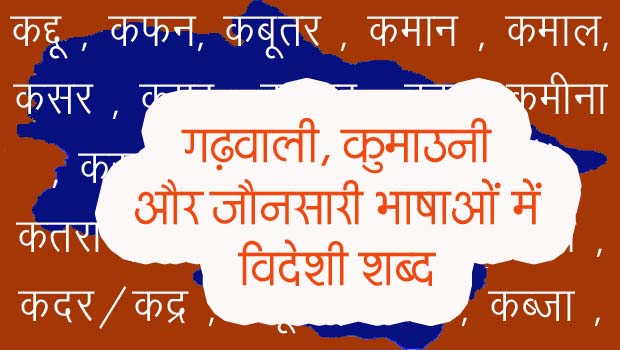साहित्य
Faundar Ji ki Kachhdi
The father of Modern Garhwali Drama Bhavani Datt Thapliyal wrote ‘Faundar ji Ki Kachhdi’ drama. (1912). The ‘Faundar ji Ki Kachhdi’ drama exposes the immorality in society; delay in judgment and corruption in state courts; sales of unmarried girls and the mafias of such activities; selling bulls to slaughter houses with the help of mafias. The drama also speaks positively about need of cultural development through following the ritual norms. Bhavani Datt Thapliyal was definitely a visionary man. Thapliyal showed the evils which exist today too as delay and corruption in judiciary; prostitution prostration through sales of girls from rural areas, no care for caw-bull as they deserve.
The story ‘Faundar ji Ki Kachhdi’ drama is about Kumutu selling his daughter at thousand rupes to a rich man of Mumbai through Purohit Durachari. Purohit Durachari did not give him thousand rupees but only hundred bucks. Kumtu goes to Mumbai to take balance money and found that his daughter is in real is sold to abutcher and now his daughter is also involved in selling animal skin. Kumtu did not get money. After returning to village, when Kumtu informs the reality to his wife, she does suicide and his son runs away from village.
Now, at the same time, Purohit Durachari and village councilor put a case of nonpayment of state tax (Thakuransh) from the sale of daughter. The judge fines to Kumtu and all his property is transferred to village councilors and Purohit. There is openly corrupt methodology in the judiciary in the drama.
Though the drama is fast but the dramatist has been successful in characterization of each character.
The Garhwali drama ‘Faundar ji Ki Kachhdi ‘written around 1912 is effective in showing corrupt judiciary and where only money talks as the Russian drama ‘One Hour Eighteen Minutes’ authored by Yelena Gremina (2010); attacks on judiciary system sharply as Arthur Miller ‘s play ‘The Crucible’(1952)attacks. The dialogues of ‘Faundar ji Ki Kachhdi’ drama make the drama humorous even showing cruel part of corrupt judiciary as also found in ‘Rape Upon Rape’ play by Henry Fielding (1730).
The drama has speed due to crispy screenplay and dialogues are marvelous as the judge speakers for describing himself ‘
Helo! Ham t chhanvaan pariyun ka payandaj! Paulisibaj! Najuk mijaj ! rat din dikhdaa randun ka naj-andaj! Ya ten fursat ka chhanvaan in mohtaj ki n t kauri sakdan sandhya, pooja-namaj n kachhedi ka kuchh kam –kaj.
The drama shows the benefits being taken by opportunists in the society due to injured judiciary system.
The drama ‘Faundar ji Ki Kachhdi’ is one act play and has all possibility in attracting the audience.
References:
1-Dr Anil Dabral, Garhwali Gady Parampara
2-Abodh Bandhu Bahuguna, Gad Myateki Ganga
3-Dr Sudharani, Garhwali Rangmanch
4-Drama special issue of Chitthi Patri magazine
Copyright@ Bhishm Kukreti



